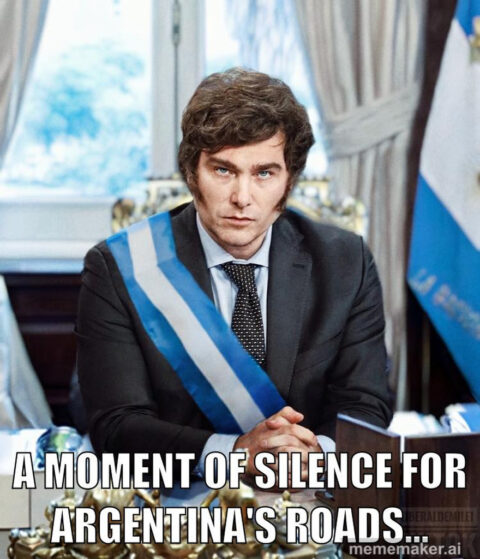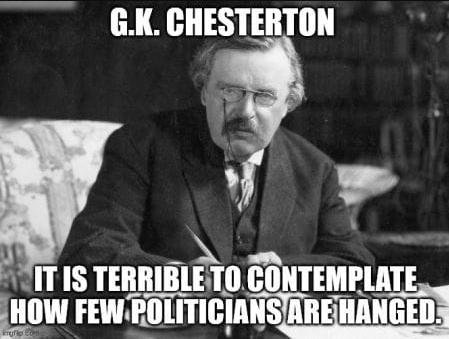Traditional Hindu society knew hundreds of hereditary castes and subcastes, but all broadly fit into four major “varna” (“colors”, strata):
- Brahmins (scholars, clerisy)
- Kshatriya (warriors, rulers)
- Vaishya (traders, skilled artisans)
- Shudras (farmers)
- The un-counted fifth varna are the Dalit (“untouchables”, outcasts in both senses of the word)
Historical edge cases aside, membership in the Brahmin stratum was hereditary, even more so than in the nobility of feudal Europe. At least there, kings might raise a commoner to a knighthood or even the peerage for merit or political expedience: one need not wait for reincarnation into a higher caste.
The Sui dynasty in China, however, took a different route. Seeking both to curb the power of the hereditary nobles and to broaden the available talent pool for administrators, they instituted a system of civil service examinations. With interruptions (e.g. under the Mongol emperor Kublai Khan) and modifications, that system remained in place for thirteen centuries until finally abolished in 1904. Westerners refer to laureates of the Imperial Examinations (from the entry-level shengyuan to the top-level jinshi) by the collective term Mandarins. Ironically, this term comes not from any Chinese dialect but (via Malay and Portuguese) from the Sanskrit word mantri (counselor, minister) — cf. the Latin mandatum (command) and its English cognate “mandate”.
Initially, the exams were limited to the scholar and yeoman farmer classes: with time, they were at least in theory opened up to all commoners in the “four occupations” (scholars, farmers, artisans, merchants), with jianmin (those in “base occupations”) still excluded. The process also was ostensibly fair: exams were written, administered at purpose-built examination halls with individual three-walled examination cubicles to eliminate cribbing. Moreover, exam copies were identified by number rather than by name. […]
In practice, the years of study and the costs of hiring tutors for the exam limited this career path to the wealthy. Furthermore, the success rate was very low (between 0.03% and 1%, depending on the source) so one had better have a fallback trade or independent wealth. In some cases, rich families who for some reason were barred from the exams would sponsor a bright student from a poor family. Once the student became a government official, he would owe favors to the sponsor.
Moreover, the subject matter of the exam soon became ossified and tested more for conformity of thought, and ability to memorize text and compose poetry in approved forms, than for any skill actually relevant to practical governance. (Hmm, artists or scholars in a narrow abstruse discipline being touted as authorities on economic or foreign policy: verily, there is nothing new under the sun.)
Nitay Arbel, “Brahmandarins”, According to Hoyt, 2019-10-08.
January 13, 2024
QotD: Brahmins and Mandarins
December 27, 2023
Eating like a Lighthouse Keeper from the 1800s
Tasting History with Max Miller
Published 19 Sep 2023
(more…)
November 30, 2023
The challenge facing Javier Milei
Craig Pirrong outlines just how much work Argentinian President-Elect Javier Milei will have to accomplish to begin to bring Argentina’s government in line with his electoral mandate:
When I wrote Milei is not a leftist, let’s say that rather understates the matter. Milei loathes leftists and leftism, and repeatedly refers to them on television and in public appearances in scatalogical terms, calling them “leftards”. He despises collectivism, and asserts bluntly that leftists are out to destroy you. His mission is to destroy them first.
As someone so vehemently hostile to the left and well outside conventional political categories, Milei’s victory has triggered a mass moral panic, especially in the media. The New York Times coverage was (unintentionally) hilarious: “Some voters were turned off by his past outbursts and extreme comments over years of work as a television pundit and personality.” Well, obviously a lot more weren’t, but I guess one has to take solace where one can, eh, NYT?
Milei’s agenda is indeed a radical one, especially for a statist basket case like Argentina. To combat the country’s massive (140 per cent annualised) inflation, Milei says he will dollarise the economy and eliminate (“burn down”) the central bank. He also wants to reduce radically the role of the state in Argentina’s economy. He says he wants to “chainsaw” the government – and emphasises the point by campaigning with an actual chainsaw.
His election on this programme sparked a rally in Argentine financial markets, with government debt rising modestly and stock prices rallying smartly.
Will Milei be able to deliver? Some early commentary has doubted his ability to govern based on the fact that his party’s representation in the legislature is well below a majority. That may be an issue, but not the major obstacle to Milei’s ability to transform Argentina into what it was at the dawn of the 21st century: an advanced, rapidly growing economy and a relatively free society.
The real obstacle is one that is faced by anti-statists everywhere – the bureaucracy. (I do not say “civil service” because that phrase is at best aspirational and more realistically a patent falsehood. Akin to the Holy Roman Empire that was neither holy nor Roman, the “civil service” is neither civil nor a service.)
Argentina’s bloated state is its own clientele with its own interests, mainly self-preservation and an expansion of its powers. Moreover, it has created a whole host of patronage clients in business and labour. Milei’s agenda is anathema to this nexus of public and private interests. They will make war to the knife to subvert it.
Even a president with an electoral mandate faces formidable obstacles to implementing his agenda. The most important obstacle is what economists call an “agency problem”. The bureaucrats are agents of the chief executive, but it can be nigh unto impossible to get these agents to implement the executive’s directives if they don’t want to. Their incentives are not aligned with the executive, and are often antithetical. As a result, they resist and often act at cross purposes with the executive.
The modern chief executive’s power to force his bureaucratic agents to toe the line is severely circumscribed. At best, the executive can make appointments at the upper levels of the bureaucracy (such as the heads of ministries or departments), but the career bureaucrats who can make or break the executive’s policy are beyond his reach, and not subject to any punishment if they subvert the executive’s agenda.
November 10, 2023
Only a government could waste this much money on the ArriveCAN boondoggle
Chris Selley is in two minds about the ArriveCAN scandal, in that thus far no minister has been implicated but we all may naively assume that the civil service was better than this sort of sleaze:
It’s tempting to want to forget that ArriveCAN, the federal government’s pandemic travel app that collected dead-simple information from arriving travellers and forwarded it to relevant officials for scrutiny, and that somehow cost $54.5 million — a figure no one has come within 100 miles of justifying, and don’t let anyone tell you differently. No one wants to remember the circumstances that supposedly made ArriveCAN necessary.
One could also certainly argue there are aspects of Canada’s pandemic response more desperately needing scrutiny. So, so many aspects.
But whenever the House of Commons operations committee sits down to investigate ArriveCAN, there are fireworks. And you start to think, maybe this godforsaken app is more key to understanding Canada’s pandemic nightmare than you first thought.
The latest blasts came on Tuesday, when Cameron MacDonald, director-general of the Canada Border Services Agency (CBSA) when the pandemic hit, alleged Minh Doan, then MacDonald’s superior and since promoted to chief technological officer of the entire federal government — pause for thought — had lied to the committee on Oct. 24 with respect to who picked GCStrategies to oversee the ArriveCAN project.
Doan told the committee he hadn’t been “personally involved” in the decision. MacDonald, who says he had recommended Deloitte build the app, says that’s garbage. “It was a lie that was told to this committee. Everyone knows it,” he said. “Everyone knew it was his decision to make. It wasn’t mine.” MacDonald said Doan had threatened in a telephone conversation to finger him as the culprit, and that he had felt “incredibly threatened”.
Crikey.
For those who’ve blissfully forgotten, GCStrategies consists of two people who subcontract IT work to teams of experts and takes a cut off the top — in this case a cut of roughly $11 million, for an app that should have cost a fraction of that, if it was to exist at all. Needless to say, that wasn’t the only fat contract GCStrategies — which, again, is two men and an address book — had received from the government over the years. Each GCStrategist made more money off ArriveCAN than I’ll likely make in my life. It makes me want to strap on a bass drum and sing “The Internationale” in public.
November 9, 2023
QotD: The end of the “spoils system” and the professionalization of the bureaucracy
… There was, however, one last check on the power of faction: The bureaucracy.
I know, that seems weird, but unless you’ve really studied this stuff — it’s not taught in most high school or even college classes, for some mysterious reason — you probably don’t know that the civil service used to be entirely patronage-based. Our two most famous literary customs inspectors, for instance (Hawthorne and Melville), got their jobs through political connections, and that’s the way it worked for everyone — every time the other party won an election, most of the bureaucrats got turfed out, to be replaced by loyal party men. Trust me: very few of the names on this list would ring much of a bell even to field specialists, but they were big political cheeses in their day; Postmaster General was a plum federal post that was often handed to loyal Party men as a reward for a lifetime of faithful service. And so on down the line, including your local postmaster.
It took until 1883 to finally kill of this last vestige of federalism, but the Pendleton Act did it. Here again, this isn’t taught in school for some mysterious reason, but the political class took a very different lesson from the Civil War than the hoi polloi. While for the proles the Civil War was presented as a triumph of the common man, the elite understood that it was training, logistics, bureaucratization, professionalism that won the war for the Union. The Republicans made a big show of putting up U.S. Grant as “the Galena Tanner” in their campaign rhetoric but Grant had been a bankrupt tanner, and indeed a conspicuous failure at everything except war … and even there, his record was carefully doctored to present an image of a bumbling amateur suddenly being struck by inspiration, when in fact Grant was a West Pointer with an impressive combat record in the Mexican War. Now is not the time or place to discuss the merits, or not, of various Civil War figures, so just go with me on this: Pretty much all the big name generals on both sides of the war were presented to the public as talented gentleman amateurs, and it was heavily insinuated that the ones they couldn’t so portray — McClellan, and especially Robert E. Lee — lost because they were too hidebound, too “professional”.
The reality is almost the complete opposite — yeah, Stonewall Jackson ended the Mexican War as a mere captain (no mean feat in The Old Army, but whatever), but he had a tremendous combat record, and was so much of a military professional that he actually taught at a military academy. This is not to say there weren’t naive geniuses in the Civil War — see e.g. Nathan Bedford Forrest — but the Civil War, like all wars since the invention of the arquebus, was won by hardcore, long-service, well-trained professionals. A naive genius like Forrest might’ve been a better tactician, mano-a-mano and in a vacuum, than a West Point professional like Custer — then again, maybe not — but wars aren’t fought in vacuums. They’re fought on battlefields, and they’re won by supply weenies and staff pogues.
[…]
They took that experience with them into politics, and so it’s no surprise that the Federal government of the Gilded Age, though tiny by our standards, grew into such a leviathan in so short a time. Again, I’m just going to have to ask you to trust me on this, since for some reason it never gets covered in school, but back in the later 19th century words like “efficiency” really meant something to the political class. All those politician-generals (and politician-colonels and politician-majors and all the rest down at the local level) expected the State to function like the Army — that is to say, as a self-enclosed world where efficiency not only counts, but triumphs. An amateur civil service can’t do that, and so the days of the political sinecure had to end.
Severian, “Real Federalism Has Never Been Tried”, Rotten Chestnuts, 2021-05-03.
October 16, 2023
In ?praise? of the “spoils system”
Glenn Reynolds on the way the US government’s structure changed from the “spoils system” of the early republic to the modern “professional” civil service of today:

Andrew Jackson sitting on a hog on top of a tomb with the inscription “To the victors belong the spoils”.
Political cartoon by Thomas Nast, Harper’s Weekly, 28 April, 1877.
America’s institutions need structural reform. We need it in academia, we need it in the corporate world, and we need it in government. In all of these fields, the structures, incentives, and institutions that have grown up over time have been destructive, and need to be fundamentally transformed.
I’ll be writing about all of these things down the line, but for now let’s start with government. Though you don’t hear a lot about it on the right, the left is all bent out of shape over the prospect that a Republican administration elected in 2024 might partially deconstruct the existing protected civil service. I, on the other hand, am excited about that prospect, and only wish they’d go farther.
Prior to the adoption of the Pendleton Act in 1883, government employment operated according to the “spoils system”, which meant that hiring in the executive branch was controlled by the Executive. When a new administration came in, everyone’s job was up for grabs, at least potentially. This “rotation in office” had several advantages, which were widely appreciated at the time, and propounded by presidents from Jefferson to Jackson to Lincoln.
Jackson argued that one serving in government for too long would inevitably lose sight of the public interest and come to use office for personal gain. He also maintained that government was or could be made simple enough for men of ordinary ability and experience, so ‘more is lost by the long continuance of men in office than is generally to be gained by their experience’.1
Contrary to popular belief, though, the arrival of a new president didn’t mean that everyone left. Even Andrew Jackson, upon taking office, replaced only about 10% of the federal work force with his own people. Every president understood the value of continuity, and hiring new people is hard work.
But under the spoils system, the fact that the president could replace anyone mean that everyone worked for him. And that meant both that everyone was responsible to the president, and that the president was responsible for everyone in the government, and everything the government did. This is consistent with the Constitution’s vesting clause, which provides that “The executive Power shall be vested in a President of the United States of America.” If the executive branch does it, it’s an executive power, and if it’s an executive power it should be controlled by the president.
Contrast this to a “professional” civil service, in which the president does neither the hiring nor the firing, except with regard to a comparatively small number of senior officials. The civil service doesn’t think of itself as working for the president, really, and will happily drag its feet when it doesn’t like the president’s priorities. And when the bureaucracy misbehaves, or fails to perform, the president can, at least to a degree, blame its recalcitrance for the trouble or lack of results that occurs.
Congress is also let off the hook, yet simultaneously weirdly empowered. Congress can blame “the bureaucracy” for bad things, even when those things result from laws that Congress has passed. Then it can turn around and “help” constituents by intervening with the bureaucracy it has rendered dysfunctional, earning gratitude that may be deserved in a narrow sense, but not in terms of the big picture.
Under a spoils system, on the other hand, nobody gets off the hook. If the bureaucracy misbehaves, the president can fire the misbehavers. If Congress is unhappy with what bureaucrats do, they can demand that the president fire them, and make an election issue out of it if they want.
So why did we wind up with a civil service? As is typical, the fantasy of a neutral, efficient, expert civil service was laid next to the reality of a messy functioning government. But, as is also typical, the fantasy in practice turned out to be considerably less appealing than as proposed.
1. Robert Maranto, Thinking the Unthinkable in Public Administration: A Case for Spoils in the Federal Bureaucracy, Administration & Society, January 1998, 623,625.
September 1, 2023
How the term “the Deep State” morphed from left-wing to (extreme, scary, ultra-MAGA) right-wing jargon
Matt Taibbi wants to track the changes in political language in US usage, starting today with “Deep State”:
In July of last year David Rothkopf wrote a piece for the Daily Beast called, “You’re going to miss the Deep State when it’s gone: Trump’s terrifying plan to purge tens of thousands of career government workers and replace them with loyal stooges must be stopped in its tracks.” In the obligatory MSNBC segment hyping the article, poor Willie Geist, fast becoming the Zelig of cable’s historical lowlight reel, read off the money passage:
During his presidency, [Donald] Trump was regularly frustrated that government employees — appointees, as well as career officials in the civil service, the military, the intelligence community, and the foreign service — were an impediment to the autocratic impulses about which he often openly fantasized.
This passage portraying harmless “government employees” as the last patriotic impediment to Trumpian autocracy represented the complete turnaround of a term that less than ten years before meant, to the Beast‘s own target audience, the polar opposite. This of course needed to be lied about as well, and the Beast columnist stuck this landing, too, when Geist led Rothkopf through the eye-rolling proposition that there was “something fishy, or dark, or something going on behind the scenes” with the “deep state”.
Rothkopf replied that “career government officials” got a bad rap because “about ten years ago, Alex Jones and the InfoWars crowd started zeroing in on the deep state, as yet another of the conspiracy theories …”
The real provenance of deep state has in ten short years been fully excised from mainstream conversation, in the best and most thorough whitewash job since the Soviets wiped the photo record clean of Yezhov and Trotsky. It’s an awesome achievement.
Through the turn of the 21st century virtually no American political writers used deep state. In the mid-2000s, as laws like the PATRIOT Act passed and the Bush/Cheney government funded huge new agencies like the Department of Homeland Security, the word was suddenly everywhere, inevitably deployed as left-of-center critique of the Bush-Cheney legacy.
How different was the world ten years ago? The New York Times featured a breezy Sunday opinion piece asking the late NSA whistleblower Thomas Drake — a man described as an inspiration for Edward Snowden who today would almost certainly be denounced as a traitor — what he was reading then. Drake answered he was reading Deep State: Inside the Government Secrecy Industry by Marc Ambinder, whose revelations about possible spying on “eighteen locations in the Washington D.C. area, including near the White House, Congress, and several foreign embassies”, inspired the ACLU to urge congress to begin encrypting communications.
On the eve of a series of brutal revelations about intelligence abuses, including the Snowden mess, left-leaning American commentators all over embraced “deep state” as a term perfectly descriptive of the threat they perceived from the hyper-concentrated, unelected power observed with horror in the Bush years. None other than liberal icon Bill Moyers convinced Mike Lofgren — a onetime Republican operative who flipped on his formers and became heavily critical of the GOP during this period — to compose a report called “The Deep State Hiding in Plain Sight“.
August 31, 2023
Disaster response plans? I’m sure they’ve established terms of reference for the to-be-appointed blue-ribbon committees to look into that … eventually
In The Line Jen Gerson discovers once again that our federal government is much more interested in making dramatic announcements — usually repeated many, many times — than in actually doing anything. Their response to her inquiry about federal disaster response planning is anything but comforting to worriers among the citizenry:
The clever and devoted readers of The Line will have already surmised that I am a touch neurotic, prone to catastrophize, and gifted with one of those imaginations that is perfectly capable of picturing in vivid detail every worst-case scenario playing out simultaneously.
And so, dear devotee, you will have no trouble picturing my mental state in recent months, in what will come be known as the Summer of Fire. Until next summer, anyway. Until then, it’s always fun to watch two cities burn (or come close to burning) over the course of a single weekend, eh?
Watching the long lines of cars fleeing Yellowknife, or the beachcombers lining the shores of Lake Okanagan as swathes of West Kelowna disappeared, I have to admit that my mind wandered into its darker wings.
Yellowknife and Kelowna are cities, yes, but relatively small ones: Yellowknife is remote and served by only one road, making it a particular logistical challenge to evacuate. But it’s still only a town of 20,000 people. This ought to be well within the capacity of a wealthy, organized G7 country.
What if wildfires threatened, say, Edmonton? A city of a million. How would we get everyone out? Where would they go? What would they eat?
And this line of internal paranoia brought me to the media landing page of the minister of Public Safety Canada. I have questions — to my mind, basic questions — about this country’s capacity to handle major catastrophes. They were as follows:
- What are the transportation resources typically available to facilitate an evacuation: in an emergency, how many people could we move by air or land, and how quickly?
- Does the federal government maintain stores of food or other basic goods? How much? How many people could we feed?
- Do we have the capacity to establish temporary housing for evacuees displaced by an emergency situation? If so, how many people could it hold, and for how long?
I also had a few more general queries. I am aware that they may not have been fully answerable by the federal government, but I was curious about what the response would be. Specifically:
- Are we going to rebuild everything that burns down, or do we have to accept that climate change will make some previously inhabited sections of Canada unlivable?
- What kind of resources will the federal government marshal toward hardening infrastructure to prepare for more serious floods and fires in the future? Is this a priority?
To be clear, none of these questions are “gotchas”. I was not out to catch the federal government by surprise, nor to embarrass it in any way. I don’t think any of these questions is unreasonable; in fact, I expected some fairly stock answers. That is, I expected that a federal government would keep at least a basic running inventory of things like temporary housing or food supplies. Further, I would have been perfectly content with very general answers. Perhaps some of my questions were misguided, and I would have been happy to understand that as well.
What I got was, well, I’m going to show you exactly what I got, offer a little of my own running commentary, and allow you to come to your own conclusions.
August 26, 2023
“Email jobs”, as defined by Freddie deBoer
Freddie deBoer offers some notes on what he calls “a book I’ll probably never write”:
When I talk to people about college-educated workers, even informed people, there’s a constant tendency to immediately think of doctors, lawyers, engineers, data scientists … Reflexively, people seem to think of educated labor in terms of college graduates who a) tend to go on to some sort of graduate study, b) work in fields that directly utilize domain-specific knowledge from their majors or graduate education, and c) are generally high-income relative to the economy writ large. These professions, combined, are a healthy slice of our labor force, and there’s nothing wrong with paying an appropriate amount of attention to them. But I think the amount of attention they’re given in the educational and economic discourse is in fact disproportionate. And I also think that there’s a kind of profession that is intuitively very understandable but which (despite considerable effort on my part) remains very difficult to classify and thus to quantify. Though it has many names, I think my preferred term is “email job”.
[…]
To me, prototypical email jobs
- Depend, naturally, on email and other digital communicative tools like video conferencing, online calendars, and networked workspaces for the large majority of their actual productive capability
- Are staffed almost entirely by people with college degrees, but while they do take advantage of time management and organizational skills that can be developed in college, almost never call on domain-specific knowledge related to a particular major
- Dedicate a considerable amount of time not to the named productive goals of the job themselves but to meta-tasks that are meant to facilitate those goals (scheduling, coordinating, assigning responsibility, “touching base”, enhancing productivity, ensuring compliance with various HR-mediated job requirements and odd whims of the boss)
- Have no immediate observable impact on the material world; an email job might involve coordinating or supporting or assessing a project that will eventually move some atoms around, but the email job itself results only in the manipulation of bits
- Cannot be considered creative in any meaningful sense — they do not entail the production of new stories, scripts, code, images, video, blueprints, patents, research papers, etc — but may involve the creation of materials that are subsidiary to larger administrative goals, such as PowerPoint presentations, reports, postmortems, or white papers
- May or may not be partially or fully remote but could likely be performed fully remotely/on a “work from home” basis without issue
- Can involve supervising lower-level workers, even teams, but these positions are not themselves fundamentally supervisory and the holder of an email job is rarely the only “report” for anyone; these positions, in other words, are not executive or executive-track, though some may escape the email job track and gain entry to the executive track
- Tend to top out at middle management, and often have a salary range (with a great deal of wiggle) between $50,000 and $200,000/year.
Doctors do not have email jobs because the human bodies they treat exist in the world of atoms, not the world of bits, and their work involves domain-specific knowledge. There are some lawyers who are effectively in email jobs, as their law credentials are used for hiring purposes but their actual task is handling particular kinds of paperwork that a non-lawyer could complete, but most lawyers are not in email jobs as their work involves various functions at courthouses and otherwise away from the computer, and anyway their work too involves domain-specific knowledge. Most accountants and actuaries are not in email jobs as their jobs require domain-specific knowledge that they acquired in formal education. Architects create new things that will someday exist in the world of atoms and utilize domain-specific knowledge they learned in college. Programmers take advantage of skills gained in college to create new things that exist for their own purpose, rather than to satisfy other administrative functions. Professors don’t have email jobs, even those who work at online colleges, as working with students takes place in the world of atoms and they are constantly accessing domain-specific knowledge they learned in formal education. Screenwriters create something new; engineers move atoms and usually get graduate degrees; CEOs don’t have email jobs because they’re on the executive track and enjoy the ability to delegate most of the email work to subordinates. I could go on.
So who does have an email job? Take someone who works in accreditation at a college in a large public university system. He or she didn’t get a major in accreditation (there is no such major) and is unlikely to have majored in education, and even if they did they would have learned about pedagogy and “theory” and assessment rather than anything having to do with their daily work lives. Essentially everything they do for work takes place within the confines of their laptop screen, and the exception is various in-person meetings that accomplish nothing beyond delegating various tasks, defining roles, critiquing past performance, and otherwise reflecting on how to do a better job of supporting the tasks that other people do. A person in this job might have a secretary or lower-level administrative functionary that reports to them, but they are not on a track that makes advancement likely — becoming a VP somewhere will likely require many years of service and going on the job market to get a job at another school. A person in this position will never interact with students in any real capacity, demonstrating the psychic distance between email jobs and the actual function of their institutions. Though they have a clear and defined set of responsibilities written into their job description, their overall impact on the day-to-day functioning of their college is nebulous, and far more time is spent on administrivia than their “real” duties. They live between the 50th and 75th percentile for individual income in their state.
August 24, 2023
QotD: Apparatchiks of the perma-bureaucracy
… in Tocqueville’s day the American government was almost inconceivably weak by our standards. For “magistrate”, then, read “bureaucrat”. Though of course American congress-critters do have “a vast deal of arbitrary power”, most of the real damage is done by unelected, unaccountable, indeed unknown bureaucrats. It’s the perma-bureaucracy, the Apparat, as the Soviets called it, who really run things. If you need examples, just google “Hawaiian judge meme”. That’s the Apparat, in all its glory, and exactly the kind of thing Tocqueville was discussing as the precursor of tyranny.
Being unelected, and therefore unaccountable, the Apparat works solely for the benefit of apparatchiks – and, obviously, vice versa. This is the mechanism by which Conquest’s famous “second law” operates: “Any organization not explicitly right-wing sooner or later becomes left-wing”. This has nothing to do with “philosophical” orientation, since as we’ve discussed, the terms “left” and “right” are essentially meaningless when it comes to modern politics. Rather, Conquest’s law works because bureaucrats always prioritize the bureaucracy’s continued existence over its ostensible mission, whatever that happens to be. Pick any do-gooder organization: The “end hunger” bureaucrats of the Feed-the-World NGO would be out of a job if the world actually got fed; ergo, you’ll soon enough find the world-feeders disinterested in, and eventually openly sabotaging, the organization’s efforts to feed anyone.
Severian, “Anticipations and Objections (I)”, Founding Questions, 2020-12-16.
July 10, 2023
“… the Western world is failing — culturally and economically — because the government now has a hand in so much of society”
The Armchair General would almost certainly agree with my frequent lament that the more the government tries to do, the less well it does everything:
There is a famous quote by American journalist and satirist H.L. Menken, which has been deployed by many political writers over the years:
The whole aim of practical politics is to keep the populace alarmed (and hence clamorous to be led to safety) by an endless series of hobgoblins, most of them imaginary.
It is an enduring quote because it has the ring of truth1, and it certainly fits with the Machiavellian aspect of politics. This attitude was, without doubt, deployed by governments across the world during Covid (and, to some extent, still is).
Your jaundiced2 General would like to propose a related, alternative and rather more plausible soundbite that, I believe, more adequately describes the Western world in the twenty-first century:
The whole consequence of practical politics is the keep the ignorant populace alarmed (and hence clamorous to be kept in comfort) by an endless series of colossal fuck-ups, labelled as crises, caused entirely by the government.3
Every time that you see the media whipping up a frenzy about a “crisis“, you can be 99% sure that the issue in question has been caused by the state — and that the real solution is to remove the government intervention. And that is never, ever the action actually proposed.
Crises of Government Origin
Your jaundiced General refers to these phenomena as “Crises of Government Origin” (COGO), and will form the back-bone of a series of posts titled with that acronym. Many of the issues are interlinked, and most are absolutely critical if we are ever to confront the economic and social issues facing us today.These include (but are not limited to):
- the energy crisis;
- the Climate Warming / Change / Heating crisis;
- the housing crisis;
- the NHS staffing crisis;
- the police shortage crisis;
- the obesity crisis;
- the education crisis;
- the pandemic crisis;
- the productivity crisis;
- the activist “charity” crisis;
- the drugs crisis (Scottish edition);
- the rape gang crisis;
- the intersectional and gender crisis;
- just about any other “crisis” you can think of.
To be sure, the UK government is not the worst in some of these areas — but, since it is in UK that my comfy leather armchair is situated, it is the rampant stupidity of our own governments that I shall concentrate on. And no, not all of these posts will include reminding people that Grant Schapps is a prick.
I can promise that every one of them will include illustrations demonstrating the mind-gargling incompetence of our governments (of all persuasions) and “Rolls Royce” civil service4.
The law is a blunt instrument, and the government is really inefficient at doing anything at all.
Fundamentally, the Western world is failing — culturally and economically — because the government now has a hand in so much of society. And the UK is in the vanguard of this malaise as Sharon White, at the time Permanent Secretary to the Treasury (and currently fucking things up in typically Rolls Royce civil servant fashion at John Lewis), said (in a rare example of her being right) in 2015 at the Institute for Government:
The UK is “almost the most centralised developed country in the world”.
Indeed it has been observed that, by some measures, the UK is more centralised than Soviet Russia. This is why we are failing.
The Crises Of Government Origin (COGO) series aims to examine some of these failures — large and small. For starters, let’s have a look at Hate Speech laws and why they are so dangerous.
1. The same applies to Menken’s definition of Puritanism: “The haunting fear that someone, somewhere, may be happy”.
2. Caused less by poor mood than incipient liver failure. Now pass the port, would you, old chap. No, to the left, you fool!
3. Yes, yes — I realise that it needs honing, but it will do for now. Feel free to submit more elegant versions in the comments.
4. Snork.
June 3, 2023
“Rather than having a culture of transparency, we have a culture of secrecy”
In The Line, Philippe Lagassé writes about Canada’s remarkably non-transparent approach to classified information and the very limited ability of our elected representatives to see anything the government chooses to deem “a secret”:
Institutions are tough to change, Canadian institutions especially. But change is possible. Gradual change can happen when we reinterpret existing rules or add new ones on top of old ones that are deeply entrenched. In other cases, a crisis happens that leads to rapid and significant change. These crises either destroy old ways of doing things, or they open a window of opportunity to shake things up. Revelations of Chinese interference in Canadian elections, and David Johnston’s first report on the matter, have opened one of these windows when it comes to Parliament and classified information.
Two sets of Canadian parliamentarians have access to classified information: Privy Councillors (though usually only those currently serving as ministers of the Crown), and those who sit on the National Security and Intelligence Committee of Parliamentarians (NSICOP). In both cases, they have access to classified information in an executive capacity, not their parliamentary capacity. Put differently, they have access to this information by virtue of an executive office they hold in addition to their parliamentary one. Parliament doesn’t have a body that has access to classified information, nor do parliamentarians have access to that information unless they hold an executive office.
Keeping classified information squarely within the executive, or in limited cases within the judiciary, reflects deep-seated Canadian pathologies. As our pathetic Access to Information system highlights, the Canadian government over-classifies things or deems too many of them subject to cabinet confidence. Rather than having a culture of transparency, we have a culture of secrecy. This secrecy culture exists for a number of reasons. Public servants don’t want their ministers to be embarrassed. Information is power within the bureaucracy and giving it out easily diminishes its value. Risk aversion is rewarded and admitting failure is frowned upon. We can’t disclose anything that might rub an ally the wrong way. The list goes on.
Above all, though, Canadian government encourages the strange notion that our secrets are super-super-secret. What do I mean by that? When you look at our allies, Canadian is an outlier in terms of what we disclose and to whom we disclose it. Canadian officials have convinced themselves that they are applying a well-established set of norms around classified and sensitive information, when in fact we’re an outlier. This is particularly notable with it comes to sharing national security information with Parliament.
In the United Kingdom, there’s a statutory committee of Parliament that has access to classified information, called the Intelligence and Security Committee. Since the United Kingdom’s Public Accounts Committee is also expected to oversee all the government’s spending, the chair of that committee has had access to classified information as well to review secret agency budgets. Australia has a similar committee, the Parliamentary Joint Committee on Security and Intelligence. This is a very active and important body. It allows Australia to regularly update its national security legislation to meet new threats and to ensure that the powers conferred on the executive are not abused. New Zealand has a parliamentary Intelligence and Security Committee, too. The Kiwi committee is a bit of an odd duck, since it’s chaired by the prime minister and has the leader of the official opposition as a member. Given that New Zealand is probably one of the most zealous countries when it comes to government transparency, though, it isn’t too surprising. They release stuff that would lead the Privy Council Office to have a collective head explosion if we did the same.
May 4, 2023
British civil servants apparently need to have training on BDSM theory and practice
In Spiked, Malcolm Clark outlines the proposal to be discussed at a civil service union conference next month:

“Cologne BDSM 07” by CSD2006 is licensed under CC BY-SA 3.0 .
For years, the LGBT lobby has wreaked havoc across the UK’s civil service. It has helped to turn the machinery of government into a crèche for the kind of people who can’t remember what pronouns they’re using that day. But this may have just been a taster of what’s to come. Kink, it seems, is the new frontier in identity politics. Get ready to meet the “BDSM” lobby.
Next month, at its annual conference, the biggest civil-service union, PCS, will discuss a motion calling on Whitehall to set up a network for staff who are into bondage, domination and sado-masochism (BDSM). I suppose there’s one thing to be said for this daft idea. The more time these jobsworths spend slapping each other around, the less time they’ll have to humiliate and torment members of the taxpaying public.
There are a few obvious problems with this proposed BDSM staff network. For one, its advocates have called for workplace training courses about BDSM. No, I’m not making this up. The suggested courses would explain that “mutual informed consent … is needed before erotic activity is carried out”. This is a statement of the obvious to most of us. Who says entry standards for the civil service are slipping?
You may have assumed that the priority of our civil service should be carrying out the business of government, rather than BDSM advocacy. Perhaps it should be getting on top of the fact that only three per cent of hospital trusts in England hit cancer waiting-time targets in 2022? Or the fact that 360,000 people had to wait more than 10 weeks for their passport last year?
One strange thing about this demand for training courses for kink-meisters is that it flies in the face of other recent staff demands. Across Whitehall, as in private industry, advocacy groups have long insisted that Britain’s workplaces have developed a toxic culture that does not respect sexual boundaries. Reams of new guidelines have been drawn up in response. Many of these guidelines consider asking questions about someone’s sex life to be, in itself, a form of sexual harassment. Yet now we could soon have staff networks based solely around people’s private sex lives. And what would a meeting of sexual fetishists discuss if not their sex lives? The weather?
Even twenty years ago, it was a common witticism to refer to workplace meetings as “beatings”, but this is a long way past a casual joke (that yes, is probably risky to make in most modern workplaces, as someone is bound to find offence).
While looking for an appropriate image to accompany this post, I was quickly reminded why most search engines now offer varying levels of “safe” viewing.
April 10, 2023
It’s totally normal for a country to send troops overseas and neglect paying to feed them, right?
This week’s Dispatch post from The Line includes some commentary on the story I linked to last week from the Ottawa Citizen, reporting that Canadian soldiers sent to Poland to train Ukrainian troops are being stiffed by the Department of National Defence on their food bills:

Operation Unifier shoulder patch for Canadian troops in Ukraine.
Detail from a photo in the Operation Unifier image gallery
Here’s a totally normal story from a well-functioning country that isn’t at all broken: it turns out that processing per diems for a hundred or so folks is now beyond the capability of the federal government.
This story came to us courtesy the Ottawa Citizen, where David Pugliese reported that the company sized unit of Canadian military personnel operating in Poland has seen months worth of expense filings go unpaid. In some situations, a military unit sent abroad would include its own logistical support team, including cooks. In other situations, a relatively small unit sent to a place with functioning civilian infrastructure is told to feed themselves and keep the receipts for reimbursement. For our troops in Poland, there to provide logistical and training support to Ukrainian forces since October, the government went the latter route.
And that’s fine. Really. Frankly, we’re sure the troops are happier eating out at local places and enjoying delicious Polish food — really, it’s amazing — than getting three servings of military slop a day. The problem, though, as these poor troops discovered, is that the military and national defence bureaucracy no longer has the ability to process the expense payments. So these balances are just sitting on their personal credit cards. For months.
[…]
The mission began in October.
It seems almost pointless to add much actual insight and analysis here. This kind of dysfunction speaks for itself. We’ll limit ourselves to two comments: operational deployments are incredible stressful on military personnel and their families on the homefront. That’s uncontroversial, and unavoidable. That’s why military service is recognized as a sacrifice even during peacetime deployments. The basic bargain we make with our servicemembers is while they are serving their country abroad, their country will take care of their families at home. Leaving these families with high-interest credit-card balances they can’t pay off because the Canadian government is too broken to reimburse soldiers for expenses they were told to incur is an on-the-nose failure of Canada to honour its debt to the the military parents, spouses and children who have been, in effect, ordered to advance the Canadian government money to subsidize military deployments.
The second comment we’ll make, is that this isn’t just further evidence in support of the Canada-is-broken thesis — it’s a very specific kind of break. We’ve all known that Canadian governments, at all levels, have struggled to turn new policies into new programs. That’s not new. But even granting that failure, we’ve generally been able to keep doing the things we already do. There seemed to be enough residual muscle memory in our governments. Can we do new things? No, not really. But we’ll keep doing the stuff we already do.
This military fiasco is alarming because it’s a sign that our state-capacity issues are now extending into areas that previously worked. Not only are we struggling to do new things, we’re forgetting how to do things we used to be able to do. This goes beyond what our typical gripes about state capacity. This is something else. This is state atrophy, or rot.
Now that the public is paying attention, we suspect we’ll see some reasonably rapid progress. The government will throw bureaucrats and maybe consultants at the problem until it goes away. This is how they have reacted to similar issues: we hurled ground staff at airport delays until they cleared, and bureaucrats at passport offices until the backlogs eased.
But we have to ask why we now require exceptional redeployments of staff to maintain typical levels of service. And we don’t like the answers we can come up with. Ottawa has added tens of thousands of civil servants, at an annual cost of tens of billions, in recent years. During that time Ottawa has also sharply ramped up spending on consultants; the annual cost now surpasses $20 billion.
And yet.
What the hell is going on?
I’ve been saying for literally years now, the more the government tries to do the less well it does everything, and this fiasco is a perfect example of that sclerosis spreading further.










